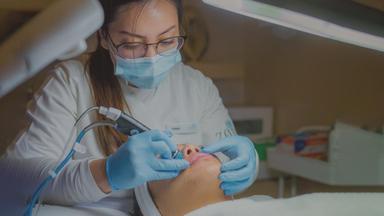
Iraqi Nationals and Eye Care in Thailand: Seeking Clarity in Thai Medical Centers
22 Sep, 2023
 Healthtrip Team
Healthtrip TeamIntroduction
The Kingdom of Thailand, renowned for its vibrant culture, stunning landscapes, and warm hospitality, has also gained recognition as a medical tourism destination. Among the various medical services provided in Thailand, eye care stands out as a sector that attracts international patients, including Iraqi nationals. In this blog, we will explore the reasons behind Iraqi nationals seeking eye care in Thai medical centers and the quality of eye care services available in the country.
A. Eye Care in Thailand: A Rising Trend
In recent years, Thailand has emerged as a hub for medical tourism, and eye care is one of the specialties that draws international patients, particularly from the Middle East, including Iraq. There are several reasons for this trend:
Most popular procedures in India
1. Quality and Expertise:
Thai medical centers boast world-class facilities and highly skilled ophthalmologists with extensive experience. Many of them have received international recognition for their expertise in treating various eye conditions.
2. Cutting-edge Technology:
Thai medical centers invest in the latest technologies and equipment for diagnosing and treating eye conditions. This commitment to innovation ensures that patients receive state-of-the-art care.
Wellness Treatments
Give yourself the time to relax
Lowest Prices Guaranteed!

Lowest Prices Guaranteed!
3. Cost-effective Care:
The cost of eye care in Thailand is significantly lower compared to Western countries and some neighboring Asian countries. This affordability makes it an attractive option for patients from countries with expensive healthcare systems, like Iraq.
4. Tourism and Recovery:
Thailand's allure as a tourist destination is an added incentive. Patients can combine their medical treatment with a vacation in a beautiful and culturally rich country, providing a conducive environment for recovery.
B. Eye Care Services in Thai Medical Centers
Thai medical centers offer a wide range of eye care services, catering to the diverse needs of international patients. Some of the common services include:
1. Cataract Surgery:
Cataract surgery is one of the most frequently performed procedures in Thai eye clinics. Advanced techniques, such as laser-assisted cataract surgery, are available to enhance patient outcomes.
2. LASIK and Refractive Surgeries:
Thailand is known for its expertise in LASIK and other refractive surgeries, providing freedom from glasses or contact lenses for those who qualify.
3. Glaucoma Treatment:
Thai ophthalmologists are skilled in diagnosing and managing glaucoma, a common eye condition that can lead to vision loss if not properly treated.
4. Retinal Surgery:
For patients with retinal issues, including retinal detachment or diabetic retinopathy, Thai medical centers offer advanced retinal surgeries.
5. Corneal Transplants:
Patients in need of corneal transplants can find expert surgeons in Thailand who perform this delicate procedure.
6. Pediatric Eye Care:
Thai medical centers also offer specialized pediatric eye care services, ensuring that children receive appropriate treatment for their eye conditions.
C. Seeking Clarity in Eye Care
While the quality of eye care in Thailand is generally excellent, it's essential for Iraqi nationals or any international patients to consider a few factors when seeking treatment:
- Research: Conduct thorough research on the medical center and ophthalmologist you plan to visit. Look for reviews, recommendations, and certifications to ensure you receive the best care.
- Language Barriers: While many Thai medical professionals speak English, it's a good idea to ensure clear communication during consultations and treatment.
- Travel and Accommodation: Plan your trip, including travel and accommodation arrangements, in advance to make your medical journey as smooth as possible.
- Visa and Documentation: Be aware of visa requirements and ensure you have all necessary documents for your medical trip.
D. Recovery and Follow-up Care
After undergoing eye care procedures in Thailand, it's essential to prioritize post-operative care and follow-up appointments. Your ophthalmologist will provide specific instructions for your recovery, which may include using prescription eye drops, wearing protective eye shields, and avoiding strenuous activities for a certain period.
Here are some additional tips for a smooth recovery and follow-up care:
1. Adhere to Medications:
Follow your doctor's instructions meticulously regarding the use of prescribed medications, especially eye drops. These medications play a crucial role in preventing infection and promoting healing.
2. Protect Your Eyes:
After surgery, your eyes may be more sensitive to light and susceptible to injury. Wear sunglasses and the protective shields or eyewear provided by your surgeon to shield your eyes from dust, wind, and bright sunlight.
3. Attend Follow-up Appointments:
Do not skip any scheduled follow-up appointments with your ophthalmologist. These visits are essential for monitoring your progress, addressing any concerns, and ensuring the success of your treatment.
4. Report Any Issues:
If you experience unusual pain, discomfort, vision changes, or signs of infection, contact your ophthalmologist immediately. Early intervention can prevent complications.
5. Maintain Hygiene:
Maintain good eye hygiene by gently cleaning the area around your eyes with a clean, damp cloth. Avoid touching or rubbing your eyes, as this can introduce bacteria and impede healing.
6. Lifestyle Adjustments:
Depending on the type of eye care procedure you underwent, you may need to make temporary adjustments to your lifestyle. For example, you might need to avoid swimming or heavy lifting for a specific period.
7. Monitor Vision Changes:
While some blurriness or discomfort is common immediately after eye surgery, if these symptoms persist or worsen, it's essential to inform your ophthalmologist promptly.
E. Returning Home
a. Medical certificates or clearance for air travel
Once your recovery is on track and your ophthalmologist approves, you can return home. Be sure to follow any travel recommendations provided by your medical team. This may include avoiding long flights or ensuring you have appropriate documentation, such as medical certificates or clearance for air travel.
b. instructions for post-operative care
Additionally, continue to follow your doctor's instructions for post-operative care, even after returning home. This diligent approach is crucial for achieving the best possible outcome and maintaining your newfound clarity of vision.
Conclusion
Seeking eye care in Thailand has become an attractive option for Iraqi nationals and international patients seeking world-class treatment at an affordable cost. The country's advanced medical facilities, skilled ophthalmologists, and commitment to healthcare excellence make it a compelling destination.
However, a successful medical journey relies on careful planning, diligent follow-up care, and open communication with your medical team. By adhering to these principles and taking proactive steps to protect and nurture your eyes, you can enjoy the benefits of improved vision and overall eye health.
In the end, the journey toward clarity and better vision is a collaborative effort between you and the dedicated healthcare professionals in Thailand's esteemed medical centers.
Related Blogs

Discover the Power of Clear Vision at Udhi Eye Hospital
Experience world-class eye care at Udhi Eye Hospital, where our

Discover the Future of Eye Care with Dr. Agarwal's
Experience world-class eye care services at Dr. Agarwal's Eye Hospital

Discover the Best Eye Care Experience at LV Prasad Eye Institute
Get world-class eye care treatment at LV Prasad Eye Institute,

Transforming Vision, Transforming Lives: EYE 7 CHAUDHARY EYE CENTRE Story
Read the inspiring story of EYE 7 CHAUDHARY EYE CENTRE,

Revolutionizing Eye Care: Experience Excellence at EYE 7 CHAUDHARY EYE CENTRE
Get the best eye care treatment at EYE 7 CHAUDHARY

India's Most Advanced Eye Care Hospitals
Get the best eye care in India from top hospitals










